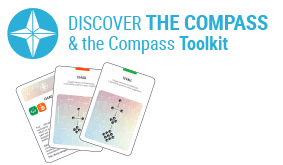New Report Release: Fostering development through MOOCs @ITCILO
/During the last edition of the Training of Trainers Forum on Sustainable Learning Solutions for the Future which took place in November we discussed among practitioners and development professionals the potential of MOOCs for development.
“To MOOC or not TO MOOC”: this was the statement around which three case studies were presented through the 5-minute elevator pitch method. The group was then invited to debate around MOOCs main opportunities and challenges.
*The Elevator Pitch is a time-effective methodology that can be used as a substitute for formal presentations. The pitch has to be short enough to deliver in an (imaginary) elevator ride but at the same time it has to be informative and compelling. To further familiarize with learning methodologies, get your Compass Toolkit.
Below is an extract of what ITCILO presented:
What makes Massive Open Online Courses revolutionary for education? Their availability and scalability, and therefore the great potential this format has to democratize education and foster development.
Why MOOCs and development? Education is at the heart of the Sustainable Development Goals. In this context, the scope for MOOCs to tackle the needs of the developing world has recently been explored. In developing countries, a small proportion of people are enrolled in higher education, while globalisation calls for a rapid catch-up process to take place.
The above may sound as a stereotype and it is clear that, although this format present many opportunities, it also faces challenges.
Between 2015 and 2016 ITCILO implemented 5 MOOCs in topic areas which are in line with the overall areas of competencies of the Centre: crowdfunding for development, the role of technology at work, crowdfunding for young entrepreneurs, gamification for development.
Taking into account the experience and data we gathered, we have just released the “MOOCs4Dev @ITCILO Report”: a guide providing a snapshot of MOOCs for development and the main challenges they face in developing countries, with a focus on ITCILO recent experience. The guide provides a summary of MOOCs design, pedagogical principles, completion rate ratio with a special focus on how to overcome challenges such as lack of a business model, lack of a standard quality assurance framework, access barriers and lack of facilitation quality support. The different tips and recommendations are also tackled in a MOOCs Toolkit which provides a series of tools to facilitate your MOOC design experience.
Are you a development organization interested in designing MOOCs for the first time?
Do you already have experiences with MOOCs but you would like to exchange ideas and experiences?









